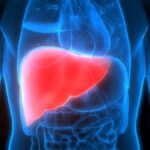
In many cases, liver cancer is preventable. Many cases arise from long-term issues such as viral hepatitis B and C, fatty liver or heavy alcohol use, but these factors can often be prevented. Image used for representational purposes only
| Photo Credit: MAGICMINE
It may be surprising to know that many patients diagnosed with liver cancer say they feel fine. And they probably do: this is because the liver is a resilient organ, it continues to work even when a large portion of it is compromised, and tries to compensate for the damage. And it is because of this that liver cancer, and other liver conditions can often remain ‘silent’ for long periods, going undetected. That is why regular scans and blood tests in high-risk patients can make a significant difference for early detection and treatment.

Understanding liver surgery
A diagnosis of liver cancer can be difficult to accept when you feel healthy. Fear takes over when patients hear the words ‘liver surgery’. Patients often imagine that the procedure is extremely risky, but medicine has taken great strides in this field. With meticulous planning and using simple imaging techniques such as MRI and CT scans to map the liver in advance, and in some cases, deliberately blocking a small portion of its blood supply ahead of time so that the rest of the liver is strengthened before surgery, and with the deployment of state-of-the art tools in the operating room, the procedure now is straightforward and safe, with minimal blood loss.
Is minimally invasive surgery possible with liver cancer? The answer is yes. In many cases, a minimally invasive approach with laparoscopic or robotic surgery may be suitable. This involves minor cuts and the use of a tiny camera to give a clear view of deep parts of the liver. These procedures involve less pain, faster recoveries, and importantly, shorter hospital stays.However, these procedures are not for everyone. Factors including size, location and type of tumour defines what mode of surgery is appropriate, as the priority is safe and complete removal of the tumour.
Any surgery demands patience, timing and the right judgement. For a surgeon, the hardest part is balance. A surgeon must decide how much of the liver is to be removed and how much of it must be left behind. If too little is removed, the cancer can recur; if too much is removed, liver may fail. Each case is unique and requires detailed planning. In some cases, quick decisions may have to be taken while at surgery, if the liver appears weaker than expected.

Other treatment paths
Liver cancer does not always require a surgery. It is not always the first best option, especially if a large part of the liver is damaged or the cancer has spread. In such cases, treatments such as ablation, chemo-embolisation, radio embolisation, targeted therapy or immunotherapy may be used first to control the disease. If the liver’s condition improves, then surgery may be considered later. The goal is to tailor-make the best chance for a longer, better life for the liver and thereby the patient.
Also Read: Many liver cancer cases can be prevented by addressing hepatitis, alcohol habits, says Lancet study
Simple prevention steps
In many cases, liver cancer is preventable. Many cases arise from long-term issues such as viral hepatitis B and C, fatty liver or heavy alcohol use, but these factors can often be prevented. Vaccination against hepatitis B, timely treatment of infections, a healthy diet, controlling one’s weight and avoiding excessive alcohol all protect the liver. People with diabetes or obesity should also undertake periodic liver-function tests. Prevention may not sound dramatic, but it saves lives, quietly.

Lessons from survivors
Survivors teach me strength. I’ve seen patients arrive very ill, undergo surgery, change their lifestyles completely and go on to live for many years. Some begin exercising, stop drinking, eat carefully and embrace life with increased positivity. Their courage inspires us. Medicine and surgery can treat the disease but a patient’s mindset can go a long way towards keeping them well.
(Dr. Dinesh Ramaswamy is senior consultant, surgical gastroenterology & GI oncology, SIMS Hospital, Chennai. dr.dineshramaswamy@simshospitals.com)
Published – October 25, 2025 04:55 pm IST

